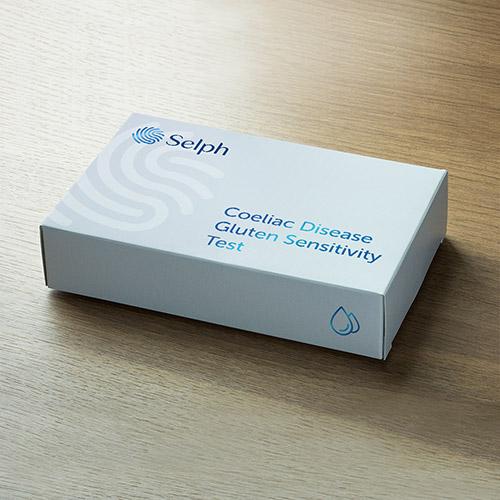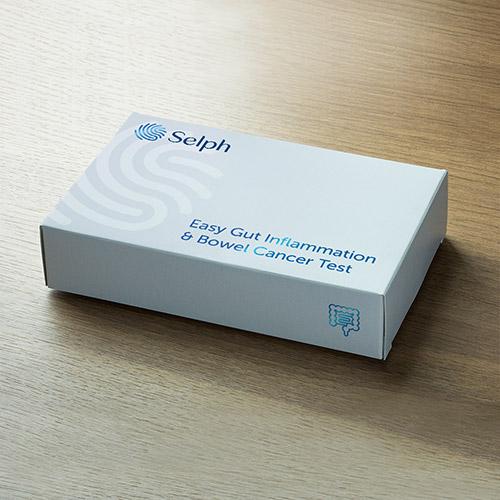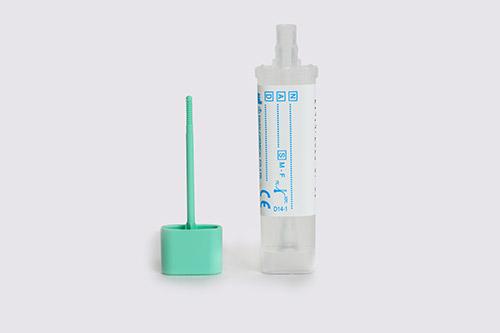How do I test for irritable bowel syndrome (IBS)?
Medical review by
Dr Alasdair Scott MBBS FRCS PhDLast updated
Key Article Takeaways
- Irritable bowel syndrome (IBS) is a common cause of gut symptoms in the UK.
- IBS does not have any physical changes in the bowel we can see or test for.
- To diagnose IBS you need to rule out other conditions that cause similar symptoms, like coeliac disease, gut inflammation and Helicobacter pylori infection.
- Rule these conditions out with our Essential IBS Test today.
- If you're over age 40, we recommend adding on a qFIT Bowel Cancer Screening Test.
If you’ve got gut symptoms and are wondering how to figure out if it’s irritable bowel syndrome, this article is for you. We’ll explain what IBS is, what tests are important and how to know if IBS is affecting you.
What is IBS?
Irritable bowel syndrome (IBS) is a common cause of gut symptoms in the UK, affecting around 1 in 10 people in the UK1. But even though people with IBS have symptoms, there’s actually nothing physically “wrong” with the gut we can see or measure.
Instead, IBS is what we call a “disorder of gut-brain interaction”. We know that the gut and the brain “communicate” via nerves and hormones along what’s known as the “gut-brain axis”. When this communication goes wrong, it can lead to signals from your gut being interpreted by your brain as pain and also abnormal gut function causing bloating, diarrhoea and/or constipation.
What causes IBS?
No one is sure exactly what causes IBS. There’s an idea that people with IBS have a super sensitive gut. Our bowels are always wriggling, stretching and contracting, particularly after eating. People with IBS may feel these sensations as “pain” while others feel the same movement as “normal”.
We do know that stress can play a key role in IBS2. The more stressed or anxious someone is, the more likely they are to experience stomach pain and gut symptoms. That’s the power of the brain over the gut. Of course, having gut symptoms and not knowing why can also cause anxiety and stress, so it can develop into a vicious circle.

What’s the difference between IBS and IBD?
Irritable bowel syndrome (IBS) and inflammatory bowel disease (IBD) are two gut conditions that are often mixed up, not least because they have very similar names! They can also have very similar symptoms, although weight loss or bleeding from the bottom is definitely more common with IBD. IBD is a disease where there’s inflammation in the bowel wall. This is different from IBS where, as we’ve said, there’s nothing physically wrong we can find.
Figure 1 below shows what a normal, healthy bowel looks like in someone with IBS on the left compared to the angry, inflamed bowel of someone with IBD on the right.

What are the symptoms of IBS?
IBS isn’t a disease, it’s a syndrome. A “syndrome” is a group of symptoms that commonly occur together. In IBS, the main symptom is stomach discomfort or pain. Sometimes this pain is relieved somewhat when people open their bowels, but not always. People with IBS can also experience bloating, diarrhoea and/or constipation.
IBS has very similar symptoms to other gut conditions such as coeliac disease, inflammatory bowel disease (IBD) and even bowel cancer. This can make it very difficult to distinguish between IBS and other gut conditions based on symptoms alone. But it’s really important to make the right diagnosis because the treatment for each is totally different.
So how do you diagnose IBS? Can you just take a test for it?
Can I take a test for IBS?
The short answer is “no”, you can’t test for IBS.
Because IBS is not caused by anything we can physically see or measure, there’s nothing we can actually test for to see if people have it. This is totally different to other gut diseases like coeliac disease where there is something physically wrong in the gut we can test for.
Ok, so if you can’t test for IBS, how do I know if I’ve got it?
IBS is what doctors call a “diagnosis of exclusion”. This means that to diagnose IBS we first have to rule out or exclude other conditions that cause similar symptoms. Then, once those other conditions are ruled out, we can say that someone has IBS. You can do this with our Essential IBS Test.

So, to diagnose IBS there are three main steps:
- Make sure you have typical IBS symptoms, which are stomach pain, bloating and a change in bowel habit going on for at least 6 months3, 4.
- Check you don’t have alarm symptoms that make other diseases more likely. These include blood in your stool, unexplained weight loss or needing to open your bowels in the middle of the night. If you’re experiencing any of these, it’s more likely that you have something else wrong like IBD or bowel cancer.
- Rule out other conditions with similar symptoms through testing.
What other conditions should I test for if I think I have IBS?
Guidelines from the British Society of Gastroenterology recommend that to diagnose IBS, you should at least be testing yourself for coeliac disease and bowel inflammation5. You may also want to rule out Helicobacter pylori infection and bowel cancer. You can find out more about each of these below. We've created our Essential IBS Test panel which tests for gut inflammation, coeliac disease and H. pylori infection all in one go.
Coeliac disease
Coeliac disease is a common autoimmune condition triggered by gluten that affects about 1% of the UK population6. It’s easy to test for with a simple finger-prick blood test you can take at home and send to our lab for analysis. You can find out more in our separate article all about what your coeliac blood test results mean.

Bowel inflammation
Bowel inflammation is commonly caused by inflammatory bowel disease which we mentioned above. We can pick up bowel inflammation with a stool test for the biomarker calprotectin. If you’ve got low levels of calprotectin in your stool, you can be confident you don’t have gut inflammation. You can find out more about gut inflammation if you’re interested.

Helicobacter pylori infection
Helicobacter pylori is a bacteria that can infect your stomach causing symptoms like bloating, belching and pain after eating. H. pylori infection can also cause stomach ulcers and prolonged infection increases your risk of stomach (or gastric) cancer. H. pylori is really common and affects around 20-30% of people in the UK8, 9. Fortunately, there’s a simple stool test for H. pylori - find out more from our in-depth article.
Bowel cancer
Bowel cancer will affect about 1 in 15 of us and becomes more common with age7. If you’re experiencing gut symptoms and you’re over the age of 40, it’s important to rule out bowel cancer by checking for blood in your stool with a qFIT Bowel Cancer Screening Test. We would recommend adding this test on to our Essential IBS Test.
If you prefer, however, we also have a 2-in-1 test for bowel cancer and inflammation so you’d only have to send in one easy stool sample to rule out both of these conditions.
Check out our article if you want to know more about FIT tests for bowel cancer.

What about testing my microbiome?
Your gut microbiome is the community of trillions of bacteria, fungi, parasites and viruses that live in your gut. There’s a lot of interest from scientists in how these bugs might contribute to IBS and other bowel diseases. Several studies have compared the microbiomes of people with IBS to people without, but no consistent differences in the microbiome have been found yet.
You might see companies advertising gut microbiome testing as a way to diagnose IBS but the truth is that we can’t do this yet - the research is still at an early stage.

Are there any other useful tests for IBS?
There are lots of conditions that can cause gut symptoms. In this article, we’ve gone through the most common and important. If you're experiencing gut symptoms, we recommend that you take our Essential IBS Test and consider adding on a qFIT Bowel Cancer Screening Test if you're over age 40.
If all your tests come back negative and you have the typical symptoms of IBS without any “alarm” symptoms, then you can be reassured and confident that IBS is the most likely diagnosis. Once you know the cause of gut symptoms, you’re in a good place to start treating them.
Sometimes other infections, problems with the pancreas and even an over- or under-active thyroid can cause symptoms that are similar to IBS. If you're looking for an even more complete picture, our Complete Gut Health Test and Symptom Screen is a comprehensive panel which uses blood and stool samples to test for the common causes of gut symptoms all in one go.
Get tips on better health
Sign up to our emails on the better way to better health.
We'll keep you up-to-date with the latest research, expert articles and new ways to get more years of better health.


